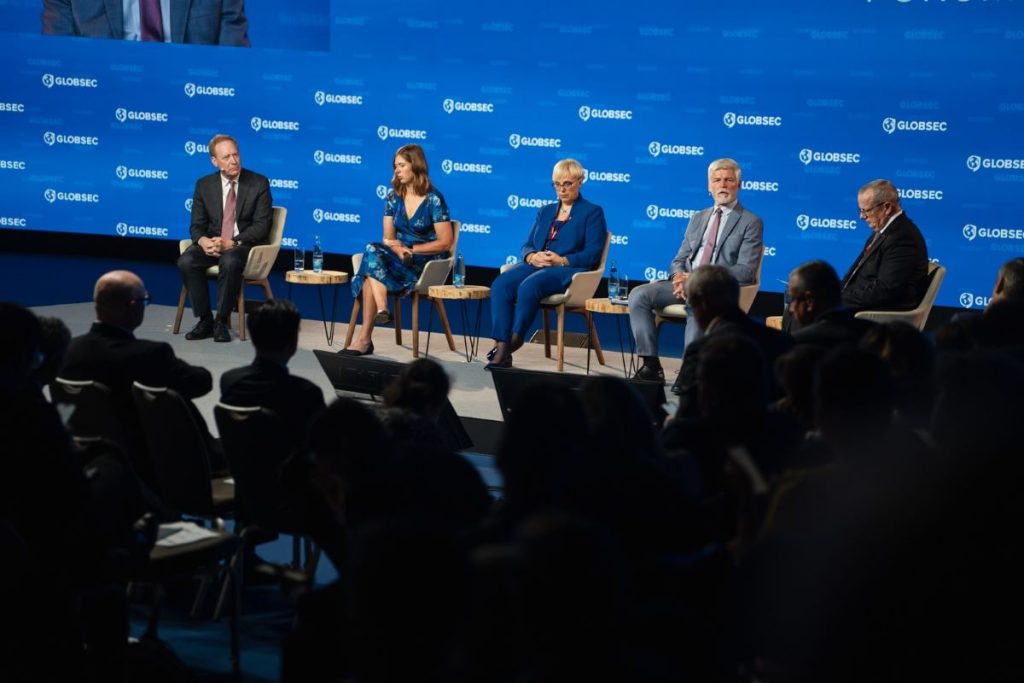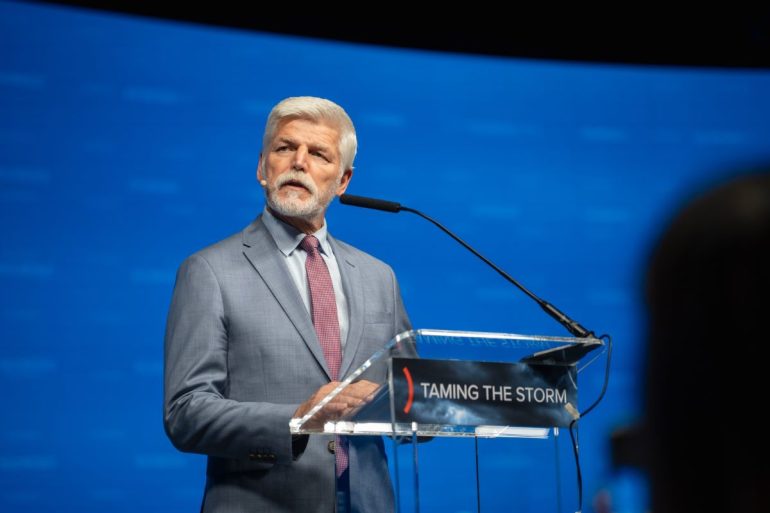Regulation of artificial intelligence (AI) is partly necessary, but the sector must not be overregulated, as technological development requires freedom, President Petr Pavel said at the Globsec conference in Prague yesterday, in a panel discussion on the technological challenges of the future.
According to Slovenian President Natasa Pirc Musar, it is important that the European Union approaches regulation through the legislation known as the AI Act, which has been in force since the beginning of August.
Pavel said the international security environment is currently governed by a competition between democracy on one hand, and different kinds of autocracy on the other. Somewhere in the middle, he argued, is a large group of countries and nations that are undecided which way to go. They have pragmatic cooperation with some of the autocratic regimes, probably out of frustration with the inability or unwillingness of the democratic states to cooperate more deeply, and at the same time are influenced by propaganda that portrays democracy as a system that will fail, he added.
The president added that technology is and always has been a tool of power, and whoever achieves a major technological breakthrough will have a great advantage in promoting their value system.
All democratic countries, he said, must ensure that technology is used to promote democratic values and is not misused by those who want to exercise greater control over their citizens and use it to dominate them militarily, for example.

Pirc Musar said technology and regulation must go hand in hand. There are, she noted, three pillars of AI regulation. The first marks what AI cannot be used for. The second focuses on potentially dangerous technologies that are to be supervised and regulated, which is what the European Act focuses on. The third denotes a sector in which the use of AI poses no threat, she pointed out.
Pavel said that he partially supported regulation, but not excessive regulation that would limit technological development. If regulation is excessive, it would open up space for competitors who would not impose similar levels of restriction, he warned.
Lukas Kintr, director of the National Office for Cyber and Information Security (NUKIB), also spoke at Globsec in a panel on cybersecurity and new technologies, including artificial intelligence. According to him, there are a wide variety of approaches within the EU towards new technologies and their regulation, and finding a compromise between all member states is not easy. The EU is currently a bit over-regulated, he said.
A new Globsec initiative called the GeoTech Center, based in Washington, was also launched during the conference. It is led by US General John Allen and aims to connect political and technological leaders in Europe and the US more effectively. It intends to create a network of technology experts, policymakers and others to bring Europe and the United States closer in their approach to the use of modern technologies, while laying the basis for an ongoing discussion on the security implications of new technologies.
The centre was supported by Microsoft President Brad Smith, who announced in a discussion that the company would provide US$3 million to support the centre over the next three years. Pavel said he hoped that representatives from Japan, South Korea, Australia, New Zealand, and possibly Israel would join the initiative.







